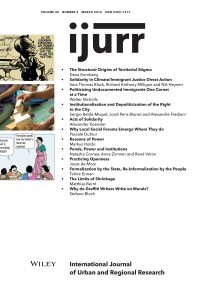In academic and public discourse on the Zionist–Palestinian conflict, there still prevails a ‘methodological nationalism’ based on a separatist imagination overshadowing the existence and role of Israeli–Palestinian forms of communality and solidarity. This article analyses micro-political practices that cross existing frontiers, both within Israel and between the occupied Palestinian territories and Israel. Through recent conceptualizations of ‘acts’, I read these ethnographic episodes in their intentional and performative dimension. What is the role of these ‘acts’? What are their effects, both on participants and the wider public? Through two interconnected cases, different functions of acts are explored. The first case relates to encounters between Israelis and Palestinians in the embattled city of Hebron in the occupied Palestinian territories; the second investigates moments during a Gandhi-inspired peace march at the ‘internal’ frontier of the Israeli Negev desert. The ethnographic perspective reveals what lies behind and beneath the acts, going beyond the conflict’s obvious structures of power. Acts function primarily as a valve of catharsis for the participants themselves, both overcoming and reproducing hegemonic discursive elements of the conflict. Paradoxically, acts of solidarity are often crucial in shaping public knowledge about the conflict in more sectarian terms.

